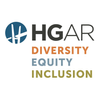“Given the potential for discrimination and inequity, it is worth considering ways to mitigate these issues within our industry?”
“Do we remove names altogether from offers or provide more DEI training for agents?”
“What’s in a name? That which we call a rose by any other name would smell just as sweet.”—William Shakespeare Romeo and Juliet.
This is the famous line where Juliet laments that if Romeo simply had a different name, they could be together, without the judgment of others. In the real estate industry, the inclusion of clients’ names on purchase offers is a longstanding practice, but it raises questions about the potential for discrimination and inequity. From a diversity, equity, and inclusion (DEI) perspective, it is important to consider how biases and prejudices may influence the treatment of individuals regarding housing opportunities. Let’s explore some of the ways in which this might manifest within the real estate industry in our day-to-day lives as agents.
Between two identical offers, could a seller or their agent be more likely to accept an offer from a client with a “white-sounding” or male name over a client with a name perceived to be foreign, from a particular ethnicity, female or a gay couple? A study conducted by the National Bureau of Economic Research found that resumes with “white-sounding” names were 50% more likely to receive a callback than resumes with “African-American-sounding” names. Additionally, resumes with male names were 28% more likely to receive a callback than resumes with female names. (Bertrand and Mullainathan, 2004, see reference below).
A second study, published in the Harvard Business Review found that job candidates with foreign-sounding names or names that are perceived to be Muslim may also face discrimination (Bohnet and Rice, 2016, see reference below). These findings raise the question of whether similar patterns might occur in the real estate industry, and whether the names that we put on our offers are having a negative impact on the clients we serve every day.
In 2021, I had a client reach out to me after not getting an accepted offer on a house. They told me that they believed they were not chosen because of the last name that was put on the offer. My knee-jerk reaction was to tell them that the market right now was immensely difficult for everyone, but after some thought and discussion with them, I realized that they had raised an important issue, one that I wanted to test out. So, for the next two months, on all of my offers, with consent from my clients, I redacted their names while simultaneously removing them from the proof of funds and pre-approval letters I submitted.
The reaction that I got from agents was almost a 50/50 split. About 50% of agents did not care, and the offers were treated as normal and accepted if they were the strongest. The other 50% of agents directly called me to probe me why I had done this. When I explained the scenario with my previous client and that I was using this new method to protect my clients, I was met with “well I would never discriminate,” and “that’s stupid.” One agent even told me that by doing this I am directly weakening my clients’ offer. The most extreme response was from an agent who told me that they would not submit my offer to the seller unless I added their names. Those 50% of agents were directly implying that a client’s name does factor into the decision-making process.
Given the potential for discrimination and inequity, it is worth considering ways to mitigate these issues within our industry. Do we remove names altogether from offers or provide more DEI training for agents? In our region, we often use purchase offers or memorandums of understanding that could have the name omitted. But in the parts of the country that use a contract, there would be a name and a signature making it problematic. How would we handle those scenarios?
We, as Realtors, are all here to serve our clients in the best way possible. If you ever found out that one of your client’s offers was not accepted because of their name, what would you do? What could you have done to prevent that from happening? Often times we cannot change the actions of others that result in discrimination, but removing the opportunity for discrimination (such as removing a name on an offer) can prevent that instance from ever happening in the first place. By addressing and analyzing these kinds of scenarios, we can create a more equitable and inclusive processes for all of our clients and help connect our Montagues with their Capulets.
References:
Bertrand, M., & Mullainathan, S. (2004). Are Emily and Greg more employable than Lakisha and Jamal? A field experiment on labor market discrimination. The National Bureau of Economic Research.
Bohnet, I., & Rice, S. (2016). Gender and racial bias in the hiring process. Harvard Business Review.
Anthony Ruperto is chair of the HGAR DEI Steering Committee.













